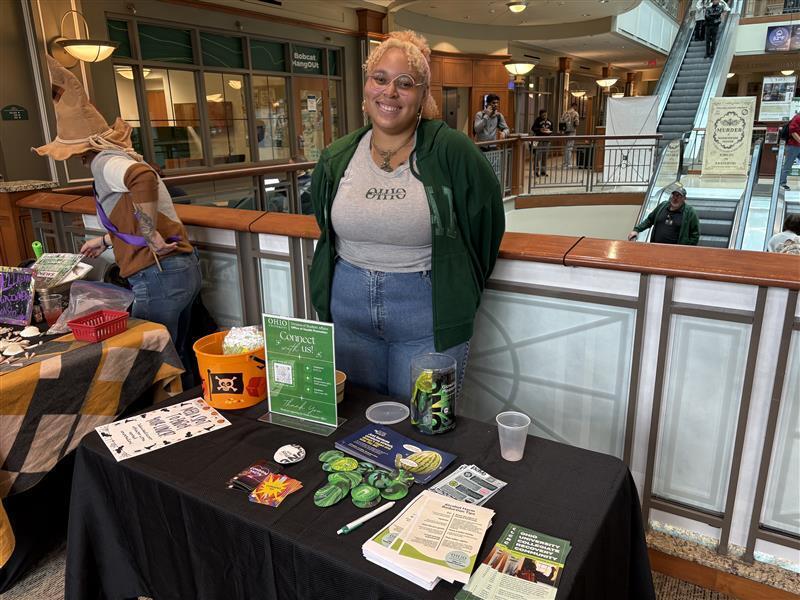If you’ve read a few of our blog posts before, you may notice that we at ONE® frequently recommend talking things through. From testing history for sexually transmitted infections (STIs) to a new sexual experience to preferences for safer sex, having a conversation is a great way to start things off. But what if you’re not comfortable talking about sexual topics? Don’t know how to start the conversation? Nervous, anxious or unsure? That’s ok!
There are a variety of reasons that someone may be less comfortable discussing sexuality and related topics. It could be cultural, it could be due to past negative experiences, it could be that they’re just less informed because of their sex education and nervous about saying something wrong. One way to support partners through this is by creating a safe space to discuss sex and safer sex options like condoms. Don’t worry, it’s not as hard as it seems. Here are some ideas from our team and other sexual health experts!
What is a ‘Safe Space’?

Let’s start by defining what we mean by the term safe space. According to Merriam-Webster, a safe space is defined as: “a place (as on a college campus) intended to be free of bias, conflict, criticism, or potentially threatening actions, ideas, or conversations.” That’s a bit of a mouthful, and we think safe spaces extend beyond campus and into everyday life.
Think back to a time when you felt completely comfortable being and expressing yourself, what did that feel like? Wherever you were, that’s how a safe space feels! Turning that definition around, the idea of a safe space is that everyone in that space feels safe, comfortable, accepted and welcomed.
Sounds pretty great, right? Ok, let’s talk about ways to create those spaces.
Who, What, Where, When, How?

The very first step in creating a safe space is actually setting the space. Basically, what can be done to make sure everyone involved is feeling safe in that space.
- That includes things like who is in attendance, as some people might feel better discussing sexual health one on one or in small groups, while others might prefer having a third-party like a counselor or medical professional there.
- Also, it helps to give some thought to what you want to discuss. What is the goal of your conversation? What topics are off limits for you and for your partner(s)? These are all good questions to ask yourself!
- Where are you talking? Is it in a public place, where there’s safety in numbers and less pressure? Or is it a sensitive conversation that should be had in private? Maybe something in between? Physical space is a huge part of safe spaces, and it’s important to think about it in advance.
- When is a good time to talk? How much time will you need? Is this something that only needs a few minutes or a few hours? Maybe you can wrap your conversation into a milestone in your lives (an anniversary, a birthday, a special day)?
- Possibly the most important question is: how? This is where it’s important to do your research, so you know the facts and you are aware of specific language you can use to make your partner(s) feel comfortable, and free to open up and discuss. Knowing the specifics will help avoid little linguistic cues that can trigger discomfort, feelings of judgment or being threatened.
Consulting the Sexperts
Another great option if you’re not sure how to approach a conversation with your partner(s) is by finding local resources (or online/via phone) offered by sexual health experts who can talk you through some of your thoughts and concerns. You can usually find these resources by searching online – many organizations like Planned Parenthood offer voice, online and in-person support.
Pop Quiz: Testing and Sexual Health
One way to manage your own sexual health is to be regularly tested for a full panel of STIs if you are sexually active.
There are great local options for low or no cost testing in most communities, which can be found online and will maintain your privacy and confidentiality. (The same is true if you are experiencing symptoms of pregnancy or think you may be pregnant.)
Fun fact: starting with your recent test results is a great way to kick off the conversations about safer sex and condom use!
Safer Sex and Condoms
The long and short of it is that wearing a condom every time you have sex helps prevent pregnancy and provides protection against STIs. Sex with a condom doesn’t guarantee that you will either become pregnant or transmit or contract an STI. However, the risk is much greater. That’s why it’s important to talk with your partner about condoms before you’re in the heat of the moment.
If the options are between talking to your partner and agreeing for you or your partner to put on a condom (or insert an internal condom; previously known as a female condom) or significantly higher risk for STI transmission or unplanned pregnancy...seems like a no-brainer, right?
On that note, there is one big perk that we haven’t discussed yet. The most important sexual organ on or in the body is your brain. When you and your partner(s) create a safe space for each other to discuss your safer sex practices and support each other, it will usually also increase your trust and comfort with each other. Knowing that you have agreed on ways to protect your sexual health and wellness, while enjoying a sexual experience can be quite the aphrodisiac (take it from us!).
Conversation Starters

The big moment is yours! Getting stage fright? Not to fear. We have some sample conversation starters to get the ball rolling.
-
Before we go any further, I just want to make sure we’re on the same page about using protection. What do you think about using a condom?
-
I can’t wait to do this, but I don’t want to take any chances. Let’s use a condom, just to be sure!
-
Hold on a second, I brought some condoms (and lube)! Want to pick one out to use?
-
I’m really into you. What are you into? How do you feel about condoms?
-
Do you have any preferences? I prefer to use a condom. What about you?
Ok, ok we’re sure you can come up with some better ones that feel more your style! If you want some more helpful resources, like video tutorials and more sample conversation starters. Check out these tips and clips that Planned Parenthood created.
You can also find a wide selection of condoms (and lube) on our site here!




Share:
Let’s Play ONE® Bingo!
Beyond Spotify Wrapped: Discover The Perfect Sex Music & ONE® Condom Pairing